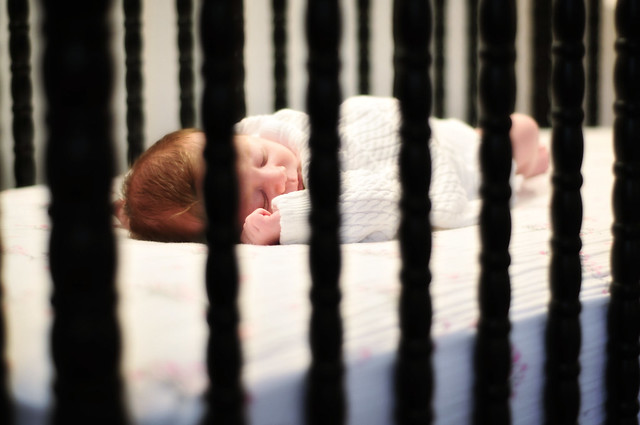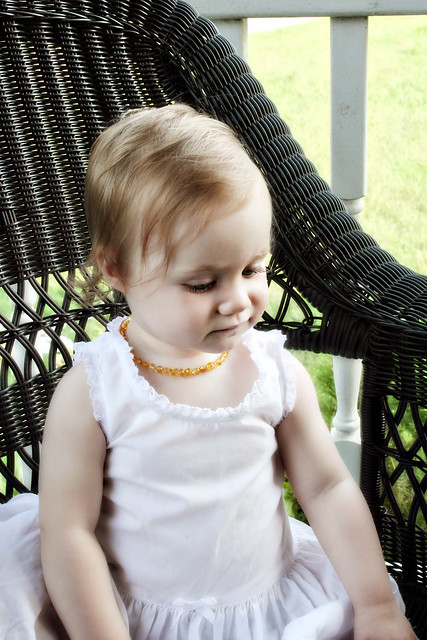by Christie Purifoy | Oct 14, 2013 | children, guest post, motherhood, rest, Stories, Uncategorized, Waiting, Work, Writing
And I am sorry. I wanted to give you metaphors that sing, but I have only this empty page and a blinking cursor. This is doubly unfortunate because today’s essay was intended for the column at Living the Story. In other words, today’s essay had a deadline.
I feel embarrassed by this blank page, as if it exposes something of which I am deeply ashamed. It seems to matter more than a blank page should.
This page is my life, I think. I rush and worry, trying to fill it up with words. I am terrified that I might run out of words.

Typically, I fill my empty pages quickly. So quickly, in fact, I rarely notice their emptiness. That this page has stayed blank longer than most, I blame on my ragged throat and tissue-burned nose. I blame it on my flexible work-from-home husband who was not, this week at least, able to work from home. I blame it on the baby girl whose cough matches my own.
She knows the baby signs for “milk” and “more” and “banana” but not for “sick.” I have to read it in the way she clings to me, the way she asks for food then tosses it down, the way she makes it impossible for me to live. Because isn’t my life composed of tasks ticked off, essays written, deadlines met? Which means today my life is not being lived. It means today this essay is not being written.
Or is it?
Perhaps even our blank pages have stories to tell?
I hope you’ll click through to read the rest of this one for the Living the Story column at the website BibleDude.
While you’re there, I hope you’ll leave a comment and let me know you stopped by.
by Christie Purifoy | Oct 12, 2013 | Books, children, Faith, God, motherhood, Poetry, Religion, Uncategorized
Ours is a house full of invalids. Which means this week little has been written but much has been read.
Really, the hardest part of a cold for me may be the burning, tired eyes. I should probably just close them, but I don’t want to waste all of this lying-abed time with actual resting. Reading, that’s where it’s at.
Do not read, as children do, to amuse yourself, or like the ambitious, for the purpose of instruction. No, read in order to live. – Gustave Flaubert

A friend recently gave me a copy of the new memoir by Kimberlee Conway Ireton: Cracking Up: A Postpartum Faith Crisis . I gobbled it up. Though, I should tell you, this is a book worth taking slow. In fact, the short chapters and brief, fragmentary interludes ask for it (but I was being greedy).
. I gobbled it up. Though, I should tell you, this is a book worth taking slow. In fact, the short chapters and brief, fragmentary interludes ask for it (but I was being greedy).
This is a simple story, simply told. I don’t mean that it’s simplistic. Rather, it is beautifully spare. Sometimes funny, sometimes heartbreaking.
Ireton hangs the story of the faith crisis she endured after the birth of twins on the scaffolding of the liturgical church calendar. The result is an exploration of one soul’s dark night that is both unique and universal.
This is the big story of Christ written very small. And that is something worth praising and worth seeking out. Advent, Lent, Easter … those are big stories, and we can become too much accustomed to their familiar contours. Sometimes we need to read them again in small ways. I am grateful to have read them here, in the small story of one year in one woman’s life.
How glad I am that I didn’t miss those cherry blossoms, that they caught at the corner of my vision, that I turned my head and saw. ‘They’re pretty,’ Doug said. But they were more than pretty. They were the color of hope. – Kimberlee Conway Ireton
Speaking of babies (oh dear, I am sometimes not very good with transitions), if you have had a baby within the past few years then you probably know this next book. You know it because I sent you a copy. Yes, this is my go-to gift for new babies: Psalms for Young Children by Marie-Helene Delval.
by Marie-Helene Delval.
We are so skilled at introducing our children to Bible stories. We decorate their nurseries with Noah’s-Ark-themed prints. We talk about Jesus while they glue cotton balls to pictures of sheep. But the Psalms? Sadly, the book I spend the most time reading can be the one I spend the least time sharing with my kids.
Of course, I do think children should be introduced to the actual Psalms. During Lent last year, my daughter read the same Psalm to us every night at dinner. The repetition was powerful and needful. However, I also think children, especially young children, can benefit from an age-appropriate introduction to the questions, concerns, and poetry of the Psalms.
What you will find in Psalms for Young Children are paraphrases written in child-friendly language. But they are not watered-down, exactly. They are Psalms from a child’s point-of-view, and they are lovely and prayerful even for the adult reading them at bedtime.
God, when I’m in my bed / at night, I think about you. / And then I’m not scared of / anything. I can fall asleep / quietly and in peace. – Psalms for Young Children
I hesitate to make this next recommendation. It is almost as if I want to pause, to make sure you are ready to appreciate a book like this. I’m afraid that sounds selfish, prideful. Really, I think my motivation is only this: I love this book and I feel so very protective of it. It is one of the most powerful, most devastating books I have read in a long time.
The book is Christian Wiman’s My Bright Abyss: Meditation of a Modern Believer . Wiman is an accomplished poet and was, until recently, editor of Poetry magazine. Seven years ago, he was diagnosed with an incurable cancer. This is a reflective book about life, art, and belief, and it was written in the valley of the shadow of death.
. Wiman is an accomplished poet and was, until recently, editor of Poetry magazine. Seven years ago, he was diagnosed with an incurable cancer. This is a reflective book about life, art, and belief, and it was written in the valley of the shadow of death.
I’m afraid putting it like that makes it sound rather lovely, but Wiman will not let us forget this valley is made up of hospital rooms, searing pain, and medications almost worse than the disease they’re meant to fight.
It would be wrong to say that Wiman returned to the Christian faith of his childhood after being diagnosed with cancer. Though, on the face of it at least, this is true. Rather, I think Wiman would say that cancer revealed to him the God who had always been there, a presence revealed through absence..
This is not a book for those who feel quite comfortable with the Christian faith. This is a book for anyone who finds the language of belief too often a hindrance rather than a help. This is a book for mystics and lovers of poetry.
This is an uncomfortable, even difficult book. It’s central emblem is not the empty tomb, but Christ crying out his forsakenness on the cross.
It is also a book I found to be so wise and true, I copied whole pages into my journal. The paperback edition doesn’t arrive till spring. I suggest buying the hardcover. If you are like me, you will fill it with notes. You will look forward to reading it again, wrestling with it again, even before you’ve read it through once.
To fling yourself into failure; to soar into the sadness by which you’ve lived; to die with neither defiance nor submission, but in some higher fusion of the two; to walk lost at the last into the arms of emptiness, crying the miracles of God. – Christian Wiman
by Christie Purifoy | Oct 5, 2013 | Books, children, Poetry, river, Uncategorized
Reading is a solitary activity.
Or, is it?
When we give books (whether tangibly or through a recommendation) a solitary pleasure is transformed into a shared joy.

This is what I thought as I put together these recommendations for you. I remembered the special friend who knew I would love this book of poetry. I remembered how she flew all the way from Chicago to Pennsylvania to stay with me, and I remembered when she put this book in my hand. She was right. I do love it, and it’s the fact of being so well known, as much as the book itself, that I am grateful for.
I also remembered the blogger who posted her love for this novel on facebook. I remembered the Chicago preschool teacher who kept copies of this writer’s books in her classroom. I know that the right books have a way of finding us at just the right time, and I hope I will always be a conduit for that magic.
I don’t believe in the kind of magic in my books. But I do believe something very magical can happen when you read a good book. – J.K. Rowling
At the risk of sounding foolishly repetitious, I want you to know that this is a magical book: The Unlikely Pilgrimage of Harold Fry: A Novel by Rachel Joyce. It’s a quiet book. Even simplistic at times. It flirts with sentimentality. And I loved it so much. This is a book that goes on working its magic in your mind and heart long after you’ve turned the last page.
by Rachel Joyce. It’s a quiet book. Even simplistic at times. It flirts with sentimentality. And I loved it so much. This is a book that goes on working its magic in your mind and heart long after you’ve turned the last page.
This is a novel about an accidental pilgrimage. Harold Fry steps out of his front door believing he will go only as far as the mailbox at the end of his street. Whether personal demons come out to chase him or some invisible force pulls him along, the result is that Harold puts one foot in front of the other until he has walked from his southern coastal English village 600 miles to the Scottish seaside.
Though I guessed the plot twist from the beginning, I still found this to be a beautiful, quietly devastating novel. It looks squarely at failure (Harold’s failures, his wife’s failures, our many, human failings) without losing hope. Harold’s story is sweet, clever, enjoyable, and profound.
‘If I just keep putting one foot in front of the other, it stands to reason that I’m going to get there. I’ve begun to think we sit far more than we’re supposed to.’ He smiled. ‘Why else would we have feet?’ – Rachel Joyce
I was introduced to the picture books of Elsa Beskow eight years ago in my daughter’s Waldorf classroom. Waldorf education places a high value on fairy tale and the natural world, and I don’t think you can find that combination more clearly, or more beautifully, expressed anywhere but Beskow’s books.
Beskow was Swedish, and she wrote and illustrated dozens of titles between the 1890s and 1950s. One of my favorites, Peter in Blueberry Land , first appeared in 1901.
, first appeared in 1901.
This is a story about a little boy searching for wild blueberries and cranberries for his mother’s birthday. Unable to find any berries, he sits forlorn on a stump in the forest until the tiny King of Blueberry Land takes pity on him. By the King’s magic, Peter shrinks in size and enjoys a day of pint-sized adventure with the many sons of the blueberry king and the red-capped daughters of Mrs. Cranberry.
We read this story over and over this summer because, well, blueberries! It’s one of those books that quickly becomes a kind of imaginative shorthand for the whole family. Wouldn’t that fern over there be a giant tree for the blueberry boys? we say. Or, Do you think Mrs. Cranberry shelters under a giant mushroom like that one?
The large format books are beautifully bound, but they can be hard to find. I discovered my copy of Peter sitting next to a display of butterfly-patterned china in a London department store. Last week, I spotted a large format copy of Children of the Forest in the gift shop of our local botanical gardens. The smaller, gift book editions are readily available on Amazon. We own a mini gift edition of The Sun Egg , and we return to it frequently even though it’s small. The baby seems especially enamored of its size, but I won’t let her play with these.
, and we return to it frequently even though it’s small. The baby seems especially enamored of its size, but I won’t let her play with these.
His mother was very pleased and said it was one of the nicest presents she had ever had. ‘Where did you find all those berries?’ she asked. But Peter smiled and shook his head. It was a secret between him and the King of Blueberry Land.
Sounding the Seasons by Malcolm Guite was a gift from a friend last spring. I’ve spent the summer reading and rereading these “seventy sonnets for the Christian year.”
by Malcolm Guite was a gift from a friend last spring. I’ve spent the summer reading and rereading these “seventy sonnets for the Christian year.”
Guite is a poet, priest, and musician from Cambridge, England. His sonnet sequence strongly reminds me of the seventeenth-century devotional poetry of George Herbert (a poet I’ve recommended here before), but it is also modern, cutting right to the heart of our contemporary preoccupations.
These poems stand alone as poems, but they are also beautiful accompaniments to the church calendar and to daily worship. By rights, I shouldn’t even include this title when claiming to give you “a peek at my farmhouse bookshelves,” because this book hasn’t seen a shelf since it arrived. It lives on my coffee table, on my bedside table, and stacked with my Bible on my desk. I carry it around with me, and I read it, at least a little bit, every day.
Some of you may have seen the sonnet I shared yesterday. Here’s one more:
O Oriens
First light and then first lines along the east
To touch and brush a sheen of light on water,
As though behind the sky itself they traced
The shift and shimmer of another river
Flowing unbidden from its hidden source;
The Day-Spring, the eternal Prima Vera.
Blake saw it too. Dante and Beatrice
Are bathing in it now, away upstream …
So every trace of light begins a grace
In me, a beckoning. The smallest gleam
Is somehow a beginning and a calling:
‘Sleeper awake, the darkness was a dream
For you will see the Dayspring at your waking,
Beyond your long last line the dawn is breaking.’
by Christie Purifoy | Sep 20, 2013 | children, Family, Grateful, Jesus, motherhood, prayer, Stories, Uncategorized
If this room were hanging on the wall of a museum, like a painting, I would call it “After the Celebration.”
The fabric birthday banner is draped over a dining room chair (having fallen, gracefully, from the top of the china cabinet). A pile of gift bags, in shades of pink and purple, is stacked on the floor waiting for a return trip to the third-floor closet. I think there may still be a few candles, slick with the crumbs of a cinnamon-apple cake, hiding beneath the birthday cards lined up across the tabletop.
I am not yet ready to sweep away the remains of this past year or the party with which we ended it. I am following the trail of these crumbs trying to piece together the story of my baby girl’s first year.

I suppose it is more my story than hers. One day she will look at photos from this day and feel utterly disconnected from the beautiful baby in the pink dress. If I can discover the story, the meaning that lurks in a messy pile of remembered odds and ends, I can pass it on to her.
A better gift, I think, than any doll or keepsake book or slice of cake.
***
I don’t have what it takes (and what does it take? Time? Skill? Dedication?) to pray long or complicated prayers for my children. Instead, I ask for a verse, I write it on an index card, and I pray it just whenever I find myself sitting at my desk.
All year my prayer for this child (my second daughter, my last of four babies) has been less of a prayer and more of a long exhalation of gratitude. I have prayed this: “A longing fulfilled is sweet to the soul” (Proverbs 13:19a).
However, this story doesn’t begin with longing. It begins with my determination not to ask or desire. It begins with a hole in my heart where longing should have been.
***
After the birth of our third, I gave away the baby things. I packed clothes in boxes and mailed them off. I left books at the used-book store. I sold the pricy breast pump on consignment.
This made perfect sense. Having finally earned my PhD, I was embarking on a career that left little space for more babies. I would soon round the corner of my late 30s. But beneath the reasonableness was something much darker: fear.
I had three children, but I had never conceived without doctor visits, invasive tests, medications. Even the surprise of my third pregnancy arrived only after months of tearful prayers.
I had always assumed we’d have another daughter. I sometimes remembered the tiny pink things I had packed away years before, but when I tried to imagine praying for another baby, waiting for another baby, I couldn’t.
Whatever store of desire had fueled my prayers for three children I had used it all up. I was empty, so I gave away every last object that might say hope.
***
Here, then, is the beginning of the story.
It is the quiet, twilit hour of bedtime. I am sitting at the end of my daughter’s turquoise bedspread. Her face is lost in shadow, but I can hear her voice clearly: “I want a sister.”
I have heard these same words before. I have heard them many times. I think it is exasperation that prompts my reply, but I wonder now if it was my own desperation?
I tell her, “I can’t give you a sister. Only Jesus gives babies. If you want a sister, you have to ask him.”
You might think this memory became meaningful only in hindsight. But that is not the truth. I knew something had happened as soon as the words left my mouth. It felt as if a boulder had shifted. Where there had been nothing within me but irritation there was something new.
Was it desire? Was it hope? I’m not sure I can name it, but it felt like this: pain.
My daughter prayed, and here is where hindsight does color this memory. Looking back, I really cannot say whether it was her prayer being offered or my own.

“I prayed for this child, and the Lord has granted me what I asked of him.”
I Samuel 1:27
*first photo by Kelli Campbell, second photo by Christie Purifoy
by Christie Purifoy | Sep 5, 2013 | children, Family, God, God's Love, grief, motherhood, prayer, Uncategorized
Two years ago, I wrote a few words for my son. They added up to something that wasn’t quite a story. I think they were a prayer. Also, a confession.
I meant them for all of my children, but it was this boy who drew them out of me.
The love we have for others – but especially for the weaker ones, like our children – is often laced with fear. That is our lot in this world: to love and to know that loving makes us vulnerable. Vulnerable to loss. To pain. To worry.
Some of our loves are laced with more fear than others. My love for this boy is like that.
However, in loving him, I have seen something strange but beautiful, something hard but good: the worst moments are the ones that wash my love clean of all the fear.
Somehow it takes having our worst fears realized, to know that our worst fears are not worth fearing. Because, ultimately, we are safe. We are loved. We are held.
Recently, my son began a new school year at a new school. He was nervous. I was nervous for him. Despite my prayers, despite my hopes, his first day went about as badly as a first day could go. Possibly, it was even worse than that. At the end of this terrible, no-good, very bad day, I remembered what I had shared two years ago. And I knew this: our worst days may be the answers to our best prayers.
(the following is edited from the archives and was originally titled The Only Thing I Pray My Children Grow Up to Know)

The second-born, my oldest boy, starts kindergarten in just a few weeks. Not only that, but he will ride the bus (which is, possibly, a bigger deal for both of us even than kindergarten itself).
I’ve been a mother long enough to know that the days are long but the years are short. These summer days drag (how to fill the time between dinner and bed?), but I will wake up tomorrow and watch my son graduate from high school. I know this, and it has prompted me to wonder: what do I want this boy to grow up to do? To know? To be?
Like most parents in these enlightened days, I say, “I only want him to be happy. Whatever makes him happy. If that means becoming a doctor, great. If it’s an auto mechanic, fine by me.” Unlike most parents, I suspect, I really do mean it.
I’ve spent enough time around highly-educated Ivy-leaguers to know that the things which spell success in our culture (straight A’s! a University of Chicago degree!) are not necessarily markers of either success or happiness.
Not only that, but I know that there is some kind of Murphy’s law of parenting: whatever I plan for my child, the opposite will happen. My father gave me only this bit of advice as I prepared for college: “Study anything you want, but be practical. Don’t major in English or History.” I was never a rebellious child, but Murphy’s law kicked in and, by the end of college, I was graduating with a double major in English and History.
What then do I want for my boy? For his big sister? His little brother?
Only this: to know deep down in their heart of hearts God loves them. Truly, that is all.
Unfortunately, there is such a big chasm between head knowledge and heart knowledge, between assenting to an idea or concept and feeling the truth of it deep inside. I tell them over and over: you are loved. By me. By others. But, most importantly, you are loved by the Love who created everything beautiful and that Love is vaster and more intimate than you may ever know.
I heard that too as a child. I sang these words in so many Sunday school classes: “Jesus loves me, this I know.” But I didn’t know. I nodded my head and agreed, but I didn’t really know.
Praying that my children know God’s love is sometimes difficult. It is as if I am praying that they suffer. Maybe I’m wrong. Maybe there is some other way in which this knowledge can travel from head to heart, but the enormity of God’s personal love was only revealed to me in some very dark places.
Looked at another way, I am not praying they suffer. I am praying they be comforted.
And this is what I want for my babies? Yes, this is what I want for them: that, like Hagar, they will one day say, “I have now seen the One who sees me.”
This is my prayer:
“I pray that you, being rooted and established in love, may have power, together with all the saints, to grasp how wide and long and high and deep is the love of Christ, and to know this love that surpasses knowledge – that you may be filled to the measure of all the fullness of God” (Ephesians 3:17-19).
I’m afraid that it will hurt, but I promise you: it is worth every tear.
“My ears had heard of you but now my eyes have seen you.” (Job 42: 5)
by Christie Purifoy | Aug 15, 2013 | Chicago, children, Dreams, Florida, Home, Jesus, motherhood, One Word, Pennsylvania, Seasons, Uncategorized
The cherry trees behind our house may be old, but they are scattering yellow leaves like overeager flower girls before a wedding.
It isn’t time yet, I whisper.
But it is time. No matter what the calendar says, it is time. I know because I have seen this once before. On August first, we began our second year at Maplehurst, and this, yellow leaves on green grass, is the first return.
The first year is a surprise. The second is a return.
//

//
She is eleven months going on all-grown-up, and I have unpacked some of her older sister’s clothes. Here is the white dress Lily wore in her one-year-old portrait. Here is the rainbow-striped sunhat she wore our first summer in our 48th Street condo.
We no longer live in that city, though it was the first place that ever felt like home to me.
My first baby girl is also lost (replaced by a nearly-ten-year-old whose legs look impossibly long in their roller skates). Of course, she returns in memory, she returns in the soft curve of her baby sister’s chin, and, who knows, maybe she’ll show up again when I unpack this dress for a grandbaby someday.
Nothing good is ever truly lost (which is another way of saying that all is being made new).
//
Today, I reread my journal. I remember the wandering years. Those drought years when the smoke of Florida wildfires was like a pillar of cloud. Back then, I wrote down the words of Zechariah.
Though I scatter them among the peoples, yet in distant lands they will remember me. They and their children will … return. I will bring them back.
Moving to this place one year ago felt like this return. Once again, we would know the rush of four seasons, the familiarity of a good friend’s face, the comforting rightness of the words this is my home. All this while watching another baby girl grow.
But return is not a one-time thing.
One year in, and I know that life with God is all about return. I am returned. And every day I am returning.
The prophet’s words tell the story of my life. Of my rescue. They also tell the story of the world:
Come, let us return to the Lord. He has torn us to pieces but he will heal us; he has injured us but he will bind up our wounds. After two days he will revive us; on the third day he will restore us, that we may live in his presence (Hosea 6:1-2).
We die so many deaths, but we are never lost. The son of God gives himself up but is returned to us on the third day. And every day this world is made new.
Something new!
If creation sings, then those are the words to her song. It is a song about birth. It is a song about coming home. It is the song of our God and our world.
I have seen these yellow cherry leaves before, yet I have never seen them before.
They have returned. They are new.
At that time I will gather you; at that time I will bring you home.
Zephaniah 3:20









